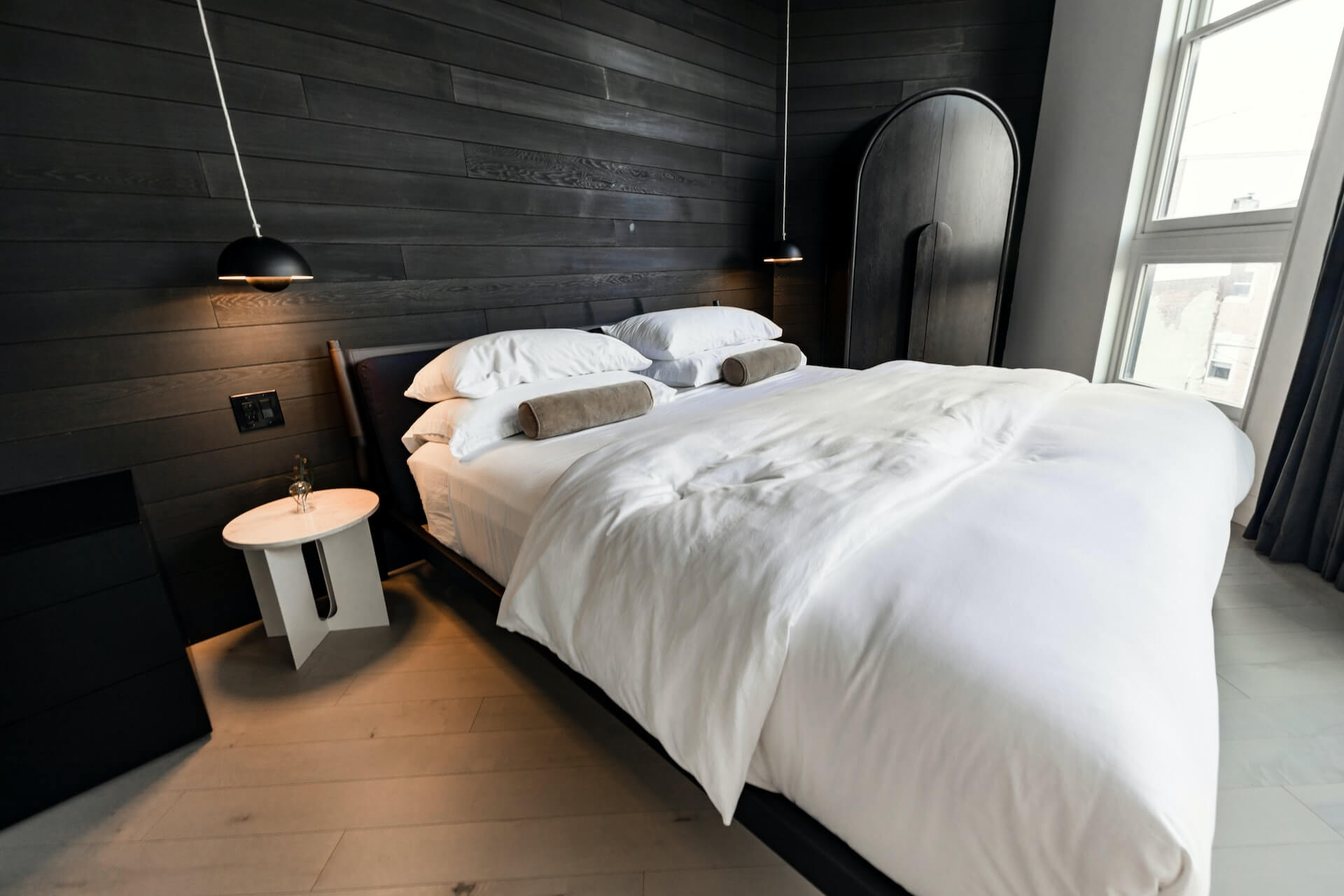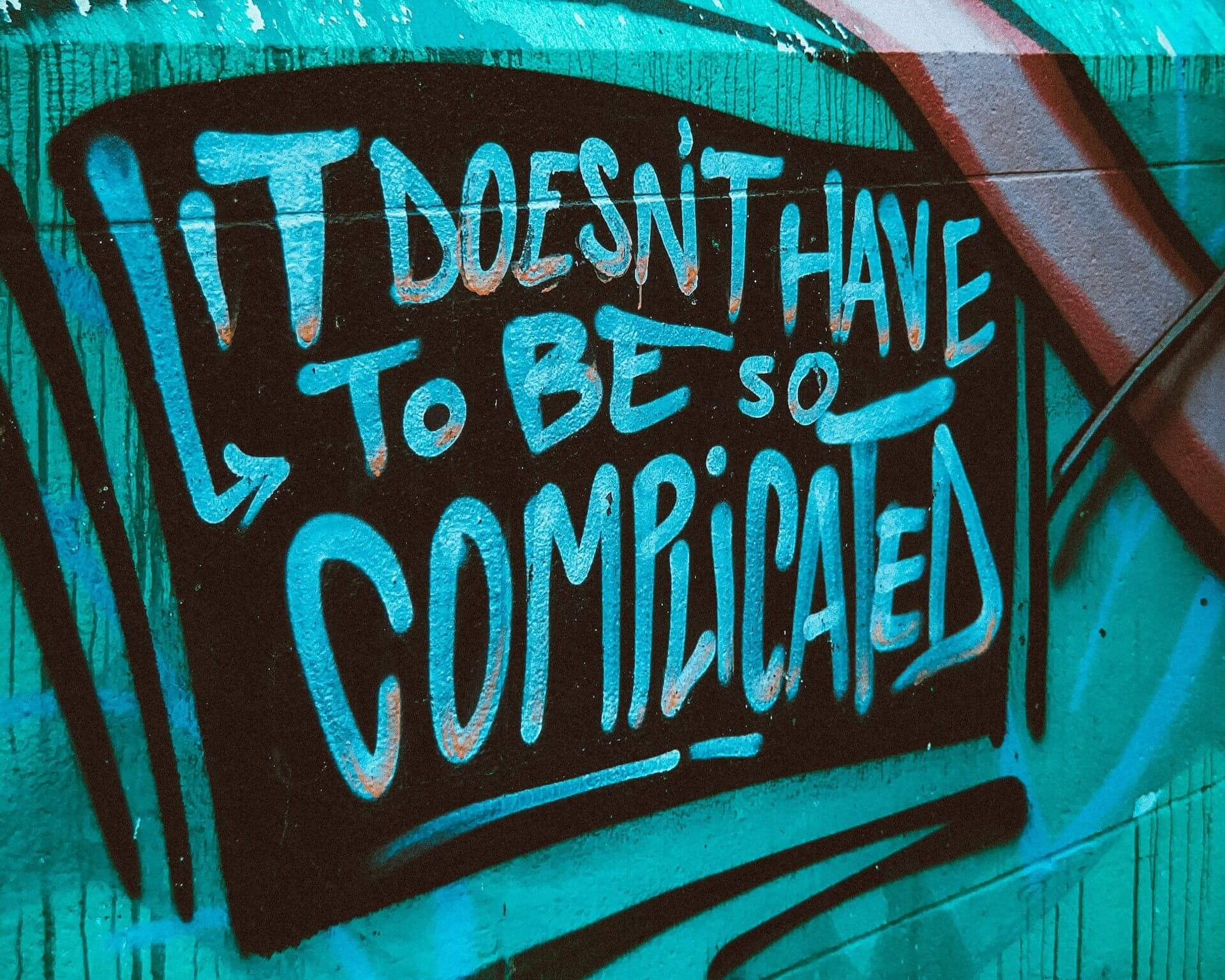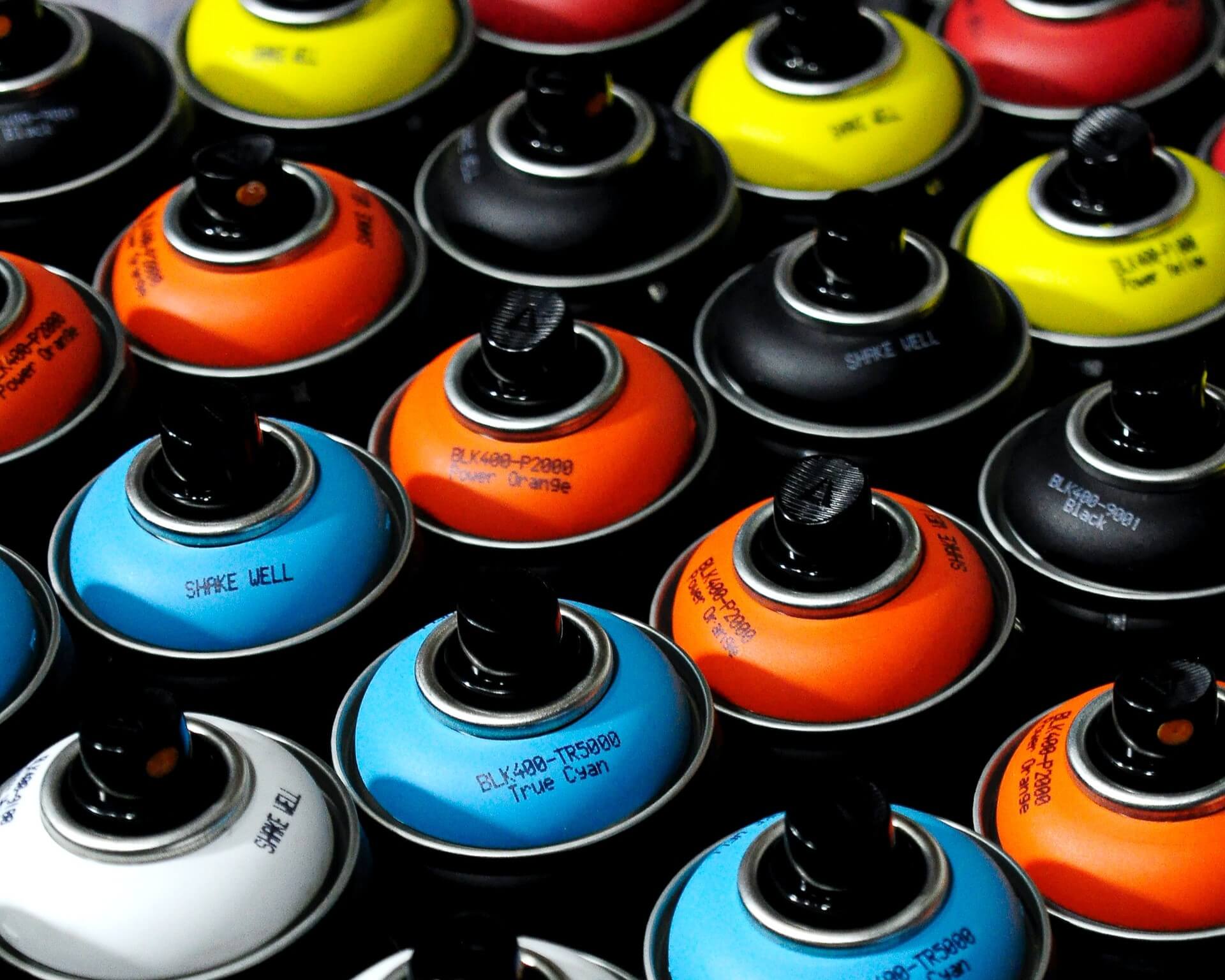Hospitality Mindset: Bar Edition
by Jennifer Radkey

Messages about the importance of mindset flood our social media feeds but what exactly does the word mean, and why is it so important?
You’re told you need to have a growth mindset to be successful. You must have a positive mindset for a happy and fulfilling life. Both are true statements, but what do they mean?
Simply stated, mindset is an individual’s usual attitude or mental state. It reflects someone’s way of thinking and motivates their actions. So, why is it important to be aware of your mindset?
Well, if your mindset is your usual attitude or how you show up in your life each and every day, it will influence all parts of your life. Your thoughts about yourself, others, your business, your opportunities, and your challenges are all influenced by your mindset. Your mindset can either hinder or promote your overall well-being and success in life.
The interesting thing about mindset is that it can change—if you want it to. Your mindset can also be influenced by your environment and those around you. These facts led me to question if the different sectors of the hospitality industry face unique mindset challenges.
To find answers and gain further insight, I decided to turn to our team at KRG Hospitality for their thoughts. In turn, I’ve begun a series of hospitality mindset articles.
In this first article I’ll explore the bar industry, with thoughts from master mixologist Jared Boller. Follow the series as I explore mindset in restaurants, hotels, and start-up operations.
Let’s dive in!
The Bar Industry
In the US, the bar and nightclub market is valued at an estimated $36 billion for 2023. The industry as a whole employs close to 600,000 people.
With businesses built off drinking culture, what unique challenges do operators and those working inside these establishments face?
Successful Operators
Operating a successful bar takes a certain mindset. You need to be flexible, open-minded to growth strategies, mindful of your market and competition, and compassionate to the needs of your team.
Interested in what makes a bar operator stand above their competition, I asked Jared what makes a bar operator successful.
“First and foremost, I think that every bar owner needs to understand their product and how they are going to differentiate themselves from the competition. Ultimately, it is up to the owner to realize what their goal is in owning a bar. It requires digging deep into themselves to ask what they want out of their business.
“Are you looking for a way to make extra cash? Are you looking to provide a local hangout for you and your friends? Do you want to win awards and have a buzzworthy place everyone wants to visit? This is a tough business that requires a lot of time and energy, and thick skin.
“Be organized, clean, a good leader, efficient, and provide a home that your employees want to come to. Try to know all aspects of the business: financials, technology, culinary, bar, service, management, etc.”
Operator Challenges
Operators need a resilient, positive, growth mindset to be successful. It’s the only path forward to running a bar they are both proud to work in and enjoy working at every day.
This is a mindset that will need tending to as there are challenges that will affect your daily thoughts, beliefs, and attitudes.
When asked what specific challenges bar operators face that may affect their mindset, Jared shared his thoughts.
Labor Shortage
Dealing with labor shortages as an operator can create feelings of frustration, stress, and resentment.
“It’s getting increasingly difficult to gain a competitive edge because of numerous factors, one of the biggest being labor shortage. It’s not a labor shortage where there’s not enough jobs, it’s an unwillingness to work and/or want to work in the hospitality industry because, quite frankly, ‘It’s tough.’
“I think that with inflation happening in the world, as well as the majority of establishments working off the Tips Blueprint, it doesn’t allow people to know what they’re making day in and day out. People are turning to different jobs or jobs outside of hospitality because they don’t want to be on their feet everyday working long hours and not knowing their future.”
Competition
If a bar operator isn’t careful they can very easily become lost in the game of comparison.
Yes, it is important to know what your competition is up to, but if the constant comparison leads to negative feelings about you, your team, and your establishment without any action for improvement, this is a surefire way to hurt your mindset and chances of success.
If you truly want to be competitive without getting lost in the comparison game, focus on your team.
“The time of pumping out commercial food and drink is gone, and legitimate professionals who are educated and professionally trained are few and far between. Additionally, there’s even a creative youth movement with ambition, but they have not been classically trained in their respective outlets.
“It’s difficult to be competitive without education, training, and bringing together a group that can keep an establishment afloat with similar perspectives. It takes an army to be competitive with everyone speaking the same language, understanding the establishment inside and out, and able to execute night in and night out with the same integrity.”
Social Media/Online Reviews
As a bar operator, you rely on your reputation within your community for the success of your business. This also holds true for your online community.
How you react and your thoughts about online reviews can affect your mindset. A negative online review can very easily incite feelings of anger, disappointment, and blame.
“We live in a world driven by star ratings, thumbs up, and everyday critics writing novels about how there was ‘too much ice in my drink,'” says Jared. “If you read too many negative comments, that could affect one’s mental health and hurt confidence.”
Coming up with a strategy for dealing with negative social media posts/reviews is critical for keeping a clear perspective and maintaining a positive mindset.
Employee Challenges
Your team experiences their own unique set of challenges that can effect their well-being and mindset as well.
Being aware of these challenges is important if you are hoping to create a culture of respect, collaboration, and trust.
When asked what specific challenges bar staff face, Jared had some insights.
Long Hours/Physicality
Bars are often open late into the night, with bartenders in particular being front and center at all times. This can lead to both physical and mental exhaustion if appropriate breaks aren’t provided.
“The physicality alone will eventually take a toll on the employee who is shaking drinks for eight to ten hours a day, working doubles, having minimal break times, and standing on their feet for the same amount of hours. On top of that, you are constantly on stage and typically in a vantage point of someone either sitting across from you at the bar or observing from a table. You are constantly having to engage, take care of, and put on a happy face even if you might be dealing with something in your personal life. Not being able to take a step away or breathe can make you feel claustrophobic or trapped at times.”
Job Security/Growth
If you are working in an unsupportive environment that does not feel safe and makes you feel as though your future with the business is unsure, it can create feelings of discomfort, resentment, anger, worry, and even fear.
Bar employees need to feel respected, heard, and valued.
“Every employee—pending they do the job well—should feel safe in their workspace. I also believe that employees should be able to grow in their workspace if they have the desire to learn and/or be promoted in the future.
“I think that if an employee does the work, and has mastered the role, they should be considered for advancement. Employees in this industry need to identify what speaks to their personal interests and try to master that. I personally wanted to master the craft of bartending so that’s the path I took. Employees should never be scared if they’re interested in growing with the brand.”
Harmful Beliefs in the Bar Industry
How you feel about the people you work with and/or work for can have major impacts on your overall mindset.
If your daily thoughts regarding your team are negative, it suddenly becomes very challenging to create a successful bar with a team who shows up wanting to do their best each and every day.
The bar industry has a few specific common harmful beliefs that are prevalent in many establishments. Being aware of these and knowing what to do with these beliefs to change them is critical to creating a more positive work environment.
Paranoia
When I asked Jared what one of the most prevalent harmful beliefs operators have about their team, he discussed the belief that everyone is taking advantage of you. Many owners believe that everyone is stealing from them.
“In all of my years working in bars and restaurants there was always this sense that employees would be taking money from them or pouring ‘free products’ off to their friends/family. Truth be told, it happens, but I think that employees wouldn’t do that if they were offered a simple ‘comp tab.’
“I’m not saying that offering a free drink here and there to a friend is right, but I think for an owner to say, ‘Buy your friends a drink every now and then to show you appreciate them coming here,’ is a nice gesture.
“I’ve worked in places where owners are transparent, honest, and trustworthy with their employees, and the employees are happy so they don’t go behind the owner’s back. I think ownership needs to be realistic and give back to their employees and visitors every now and then, because that will boost morale.”
Feeling Unappreciated
When it came to harmful beliefs that staff have about ownership, Jared shared that employees feel that ownership does not care about them. While in some cases these beliefs may unfortunately be valid, in many cases owners may just be legitimately unaware that there are issues or concerns that need to be addressed.
“A lot of hospitality employees don’t feel appreciated by their bosses. Employees often feel like they can’t have a voice. Sometimes owners are so tied up in everything else to maintain the business and they won’t recognize you unless you speak up and engage in conversation over frustrations. Staff members need to not overstep their boundaries, but if there is something that could potentially move the business forward, express your concern.
“I’ve always had a good relationship with owners because I try to throw out ideas they don’t see, and come up with a potential solution to an issue. Owners don’t know everything and a lot of time are caught up in the day-to-day business. You were hired there for a reason: because they trust you to do a good job.”
Moving Forward
Understanding the importance of cultivating and maintaining positive, growth mindsets will allow you to move forward with your team towards shared goals and dreams.
Nobody wants to hate where they work, and with commitment to tackling challenges and harmful beliefs, this won’t be likely to happen.
So, what positive changes have been incurring in the industry as a whole?
“Simple things. Team-building events, like a picnic, an annual dinner to celebrate the staff, a field trip to a farm, quick getaways, etc. When the ownership/management team gives back to their team they end up enjoying coming to their second home everyday.
“Ensuring there are appropriate breaks during the long days, and potentially offering a ‘family meal’ to boost energy and give them food they might not be able to afford at home. Promoting ‘in-house’ competitions, such as the person who has the best wine sales at the end of the week gets a free bottle of wine. Leveraging different companies—spirits, wine, food purveyors—to do in-house demos and educationals. Allowing the staff to be hands on and learn something that will provide value to their personal growth.
“With less and less people choosing to take the hospitality path, it creates a lack of talent or people willing to roll up their sleeves and do the work. That’s why it’s important that the venue gives back every once and awhile.”
Room for Improvement
Although we’re starting to see more awareness of the well-being of those working in this industry, there are still many changes that need to happen.
“There needs to be sustainable and livable wages established universally amongst staff. With a world of inflation and prices on everything sky-rocketing, people are not going to be able to work in this industry and survive.
“There needs to be more meetings amongst staff to ensure that everyone has a voice and that everyone is on the same page when it comes to their jobs. There are a lot of mental health issues to this day because the hospitality industry is a crazy, tangled-up web when there is no guidance and good leadership. Our industry still has substance abuse issues, with people self-medicating with drugs and alcohol to help numb their pain, in addition to consuming too much caffeine to stay afloat.
“There needs to be more support and coaching programs available to new operators—similar to what we offer through KRG—to ensure they understand what they are signing up for. Education, leadership, guidance, inspiration, and providing a great work/life balance need to be a primary focus. Out with the 70-hour work week—back to a sustainable work timetable.”
Final Thoughts
Winning mindsets create winning concepts and winning teams. Having a positive mindset doesn’t mean that you don’t experience challenges or that you don’t experience any negative feelings. We are all human; of course we are going to have negative thoughts now and again.
It’s what you choose to do with those thoughts. If you allow them to become your predominant attitude, that will determine your overall mindset. The bar industry may have it’s challenges but it is also a place of excitement, entertainment, and creativity, a hub for social interaction with a never-ending hum of humanity.
I’ll leave you with a few last words of wisdom from KRG’s master mixologist Jared Boller.
“Understand that every day is going to be different than the previous, and you have to constantly adapt to what’s being thrown at you. If you’re not adaptable and can’t bend to spontaneous requests you might find yourself going into a dark space. Know that everyone is different, with unique upbringings and alternative perspectives on life. You are not always right, nor are they.
“Establish your rules in this bar environment. Educate yourself so you know more than everyone else in the room about your business and your craft, and open your mind to learning new things. Don’t be a know-it-all because that’s just downright annoying.
“And, finally, my rules that I live by behind a bar: ‘If someone wants to speak religion, decline. If someone wants to get your beliefs on politics, decline. And when a woman asks you their age, don’t answer, or politely decline.’ Everything else is an open conversation.”
Cheers to personal and professional well-being!
Image: Rachel Claire on Pexels

















